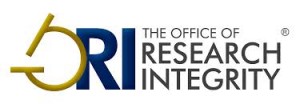 A former graduate student at the University of California, San Francisco “knowingly falsified and/or fabricated” data in two published papers, according to the Office of Research Integrity.
A former graduate student at the University of California, San Francisco “knowingly falsified and/or fabricated” data in two published papers, according to the Office of Research Integrity.
According to a case summary published this morning, Peter Littlefield was working on his PhD, studying the ways that cells respond to external signals, when he published the two problematic papers. He is the first author on the papers; Natalia Jura, whose lab he worked in, is the last on both.
The report’s findings are based on, among other sources, “the respondent’s admission.”
The first paper, “Structural analysis of the EGFR/HER3 heterodimer reveals the molecular basis for activating HER3 mutations” was published in Science Signaling and has been cited twice, according to Thomson Scientific’s Web of Knowledge.
Three figures in the paper are problematic, says the ORI summary:
ORI found that Respondent knowingly falsified and/or fabricated data and related text by altering the experimental data to support the experimental hypothesis. Specifically:
1. ORI found falsified and/or fabricated data in Paper 1 in:
a. Figure 5B by manipulation of the HER3 protein concentrations in the experiment to provide the desired outcome
b. Figure 6C for the identification of the kinase domain construct EGFR-V924R by falsely claiming that both EGFR and HER3 contained the kinase domains and the full JM segments, when the JM-HER3 construct included cloning tags
c. Figure 6D by manually manipulating the error bars to increase statistical significance of the kinase assay
The second paper is “An ATP-Competitive Inhibitor Modulates the Allosteric Function of the HER3 Pseudokinase.” It was published in Chemistry & Biology, and has been cited 7 times.
This paper also has three problematic figures, according to the ORI:
a. Figure 3C by manually altering some of the data points by 10-20% support the desired hypothesis
b. Figure 4A by manipulating data points and reducing error bars and failing to report that JM-HER3 construct had cloning tags
c. Figure 4B by reducing several data points by ~ 15%
Littlefield has agreed “to retraction or correction” of the two papers as part of a Voluntary Settlement Agreement.
The agreement also says that, for the next three years, he is not allowed to serve “in any advisory capacity” to the U.S. Public Health Service, and if he does any PHS-supported research it will be supervised.
But for now, he’s left the lab bench to be an SAT tutor. According to his bio on the tutoring site:
I’m currently on a leave of absence from UCSF to further explore my interests in the fields of teaching and clinical medicine.
We called Littlefield to see if he had a comment:
I do not at this time.
A spokesperson for Science Signaling told us the paper will be corrected, not retracted:
The paper is not going to be retracted. Some errors were made in presenting the data. Those will be corrected in an erratum scheduled for 1 September 2015. The editors have reviewed the errors and the corrected figures and are confident that the conclusions are not compromised by the mistakes.
A spokesperson for Cell Press, which publishes Chemistry & Biology, told us the journal is figuring out how to proceed.
The corresponding author notified Chemistry & Biology about the findings of the ORI investigation and we have been in contact to determine the best way to correct the scientific record.
We also reached out to Natalia Jura, and will update this post if we hear back.
Like Retraction Watch? Consider supporting our growth. You can also follow us on Twitter, like us on Facebook, add us to your RSS reader, and sign up on our homepage for an email every time there’s a new post. Click here to review our Comments Policy.
Regarding the first paper, the “falsified and/or fabricated data” are converted into “some errors in presenting the data”, as if by magic!
I’m anxious to see what kind of erratum will be published by Science Signaling.
An erratum for the 1st paper (Sci. Signal.) has been published:
http://dx.doi.org/10.1126/scisignal.aad2447
I didn’t have the chance to read it (paywalled: USD 20), but the table of contents mentions:
“The errors in data presented in Figs. 5B, 6C, and 6D are corrected. “
Falsifications in paper and data presentations are must not be allowed in academic resourcing verification practices to avoid mislead.